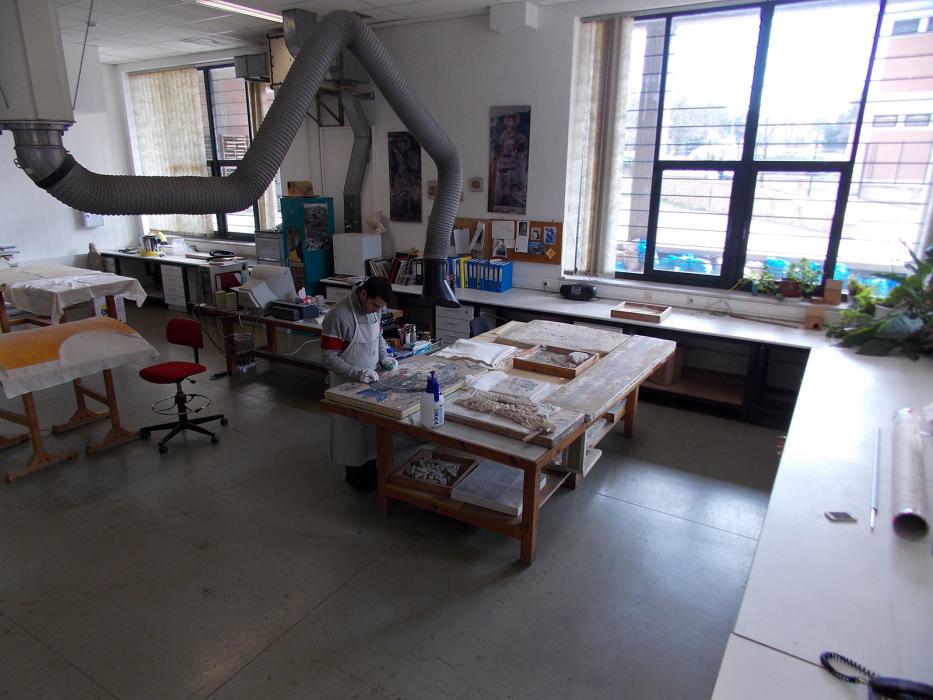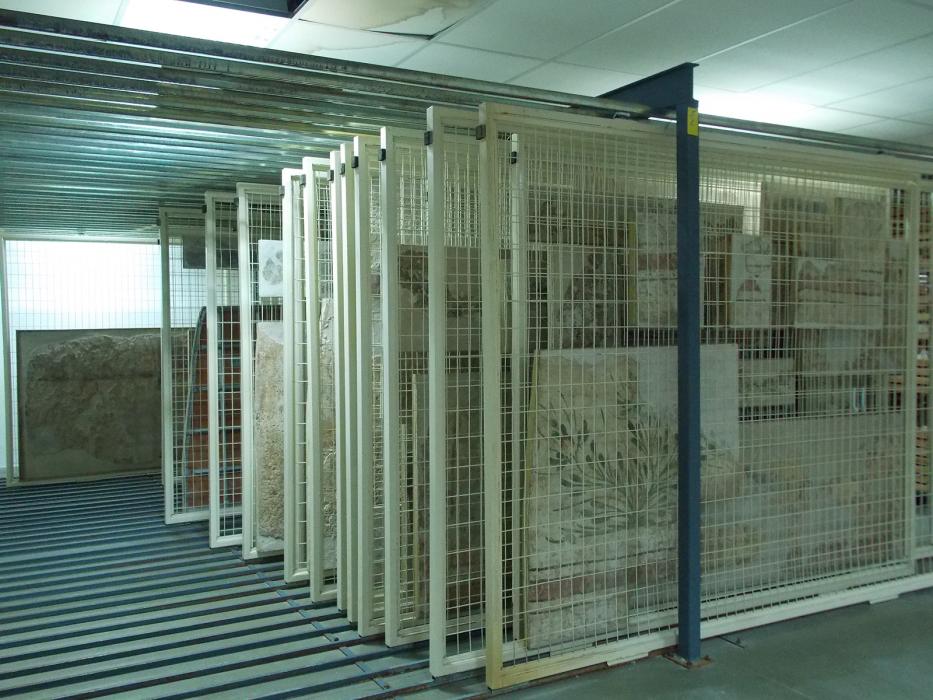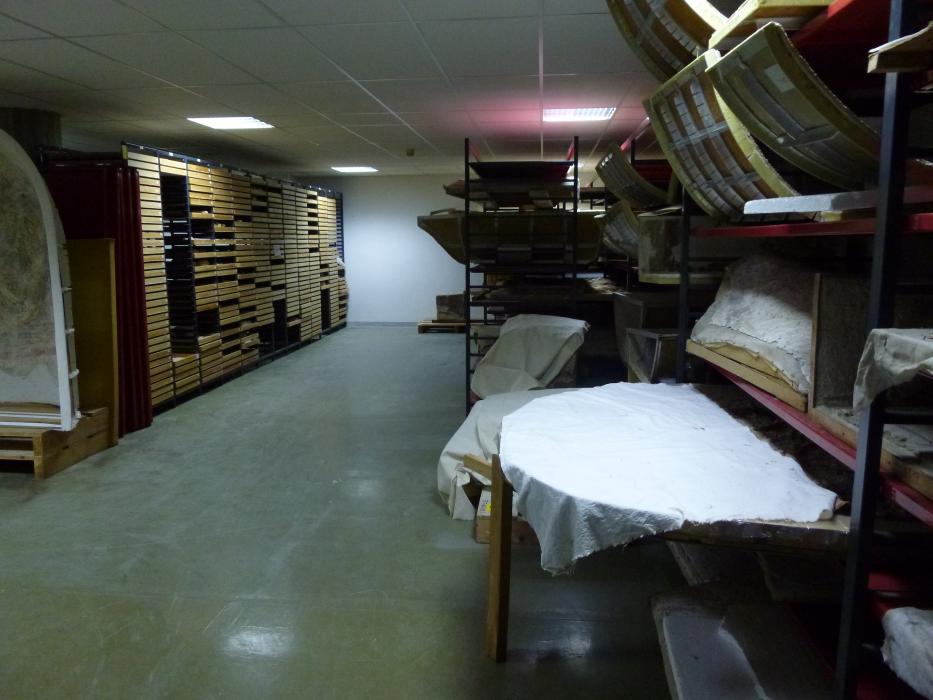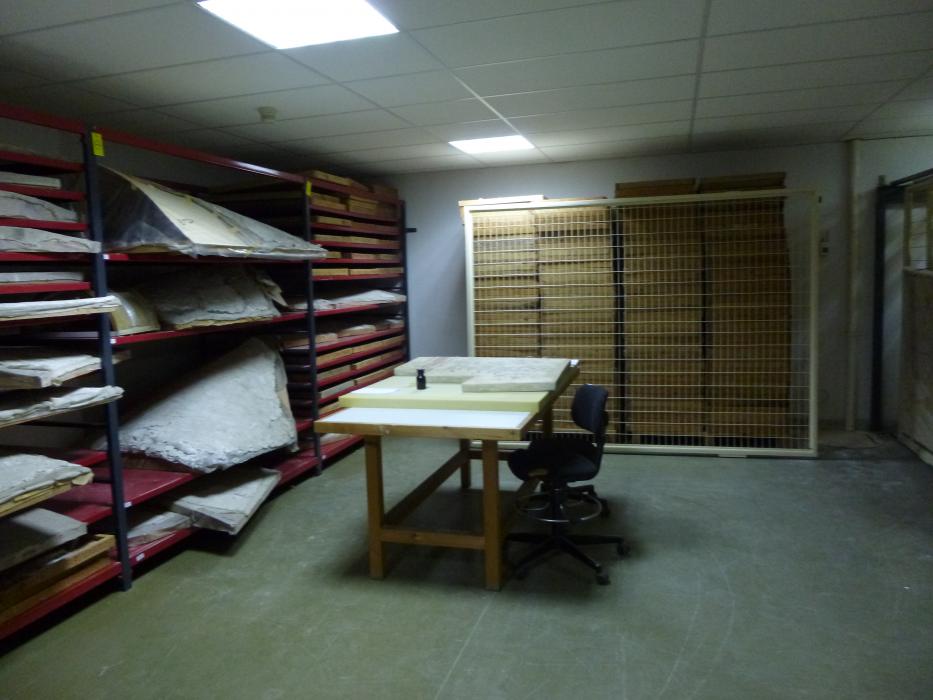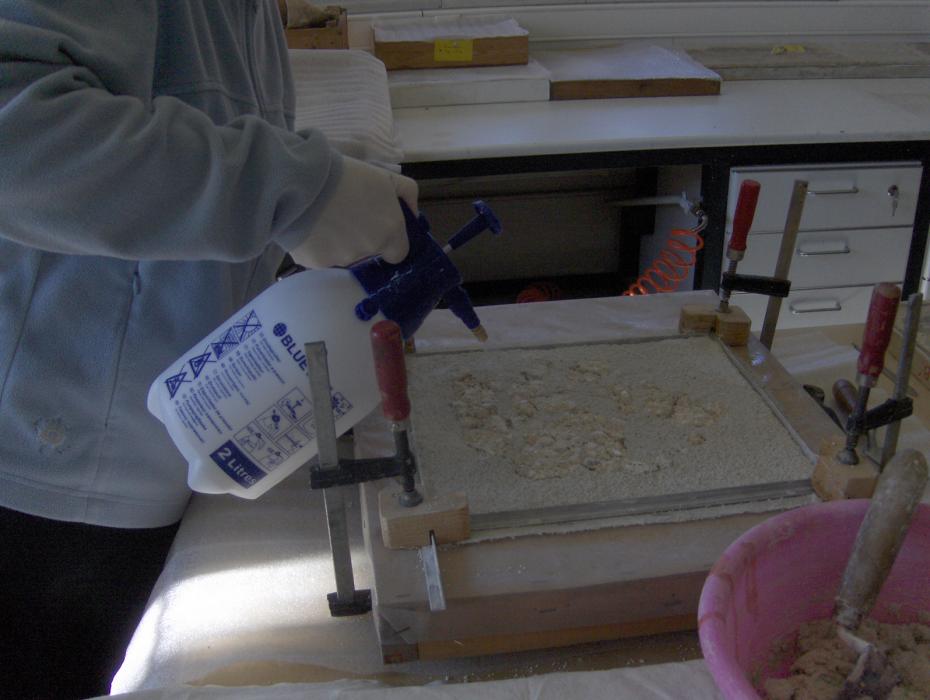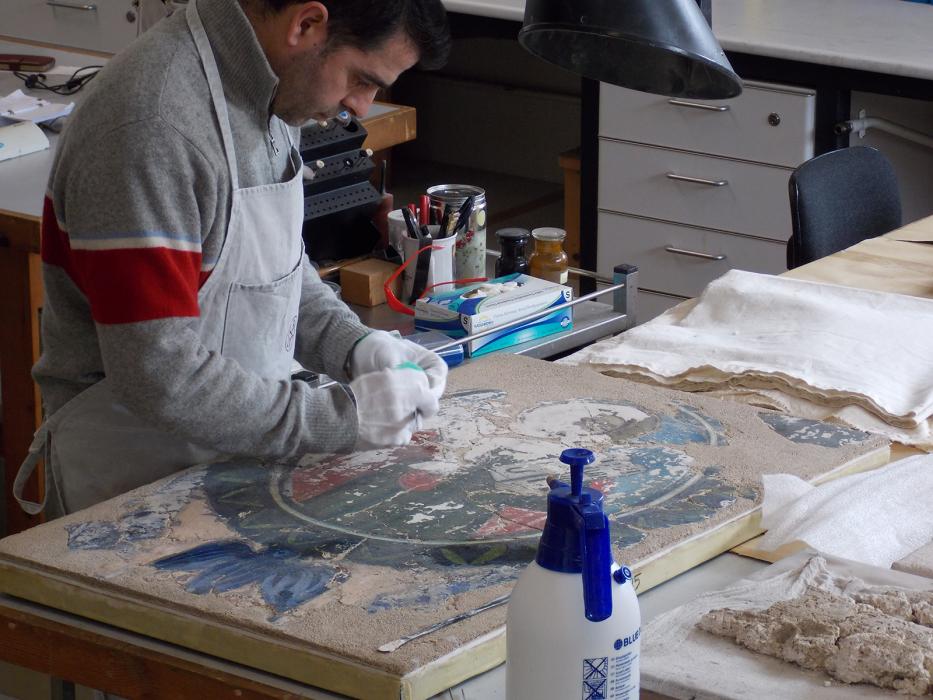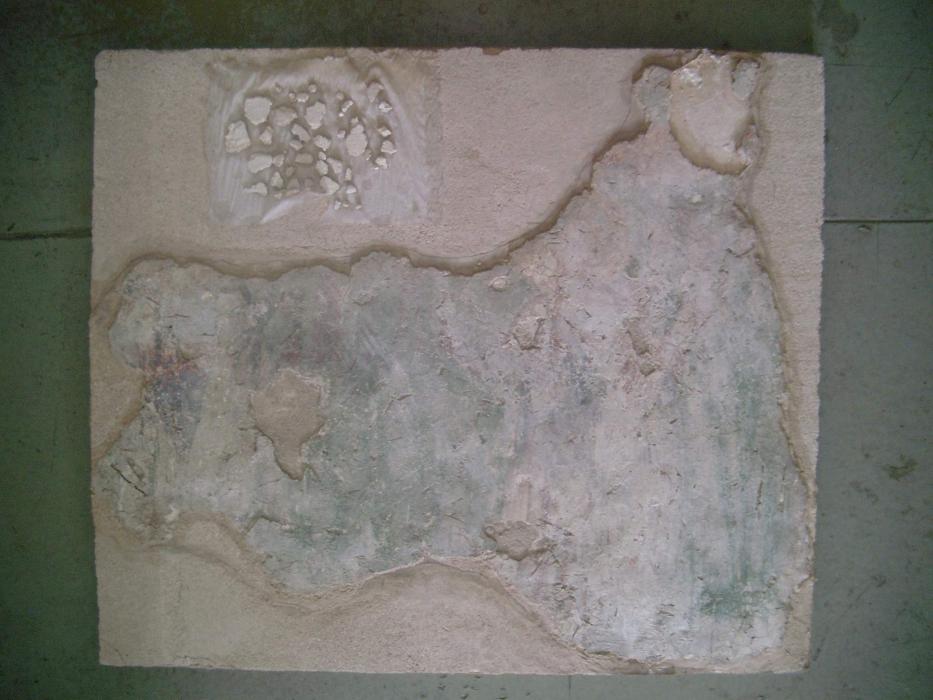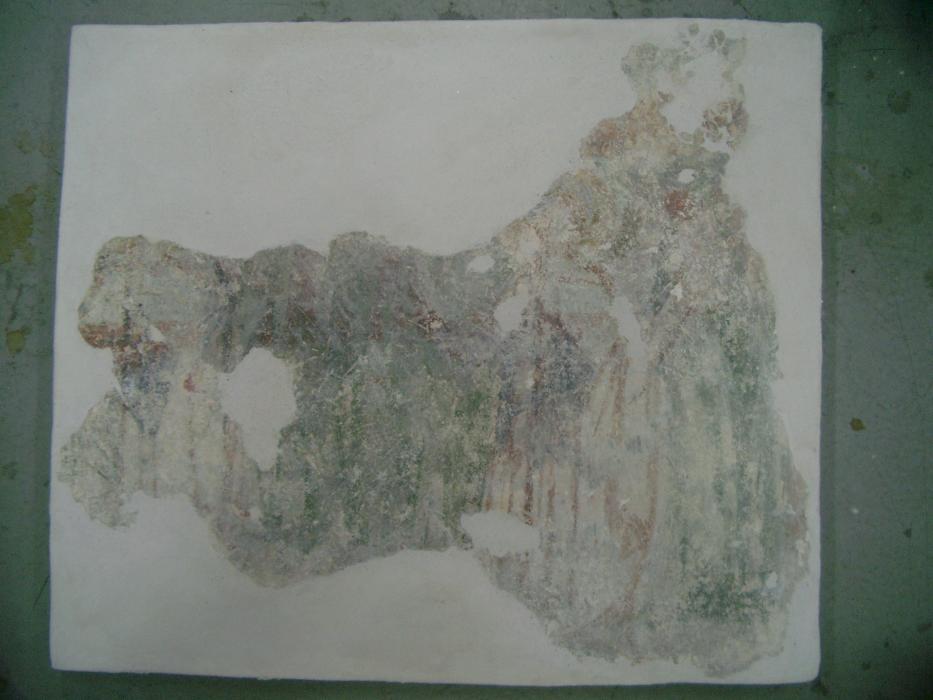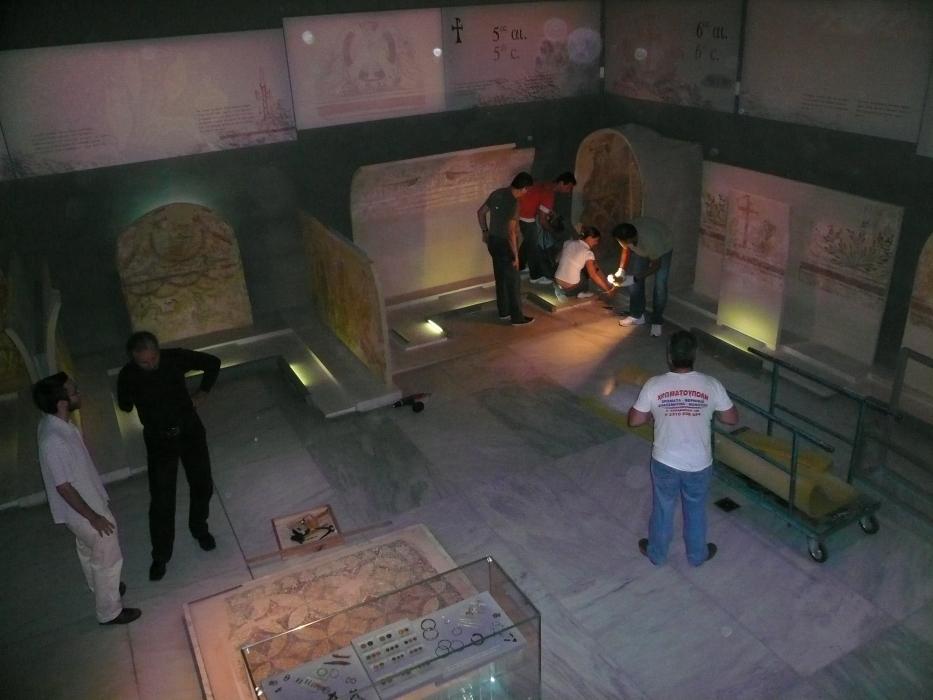Conservation Workshop of Mural Paintings
The collection with the Museum’s detached mural paintings comes from monuments and churches in Thessaloniki and the broader region of Macedonia. It comprises 200 pieces approximately, which are dated from the Early Christian period (4th – 7th c.) to the post-Byzantine period and modern times (19th – 20th c.). Most of them (from the Early Christian period) are painted in the fresco technique (wet plaster), whereas those of the post-Byzantine and modern periods are painted in the secco technique (dry plaster).
In the workshop restoration works are carried out on detached mural paintings and their repositioning on portable supports, so that they can be exhibited in the permanent and temporary exhibitions of the Museum.
The workshop focus on works, such as the record and the detailed imprinting of the conservation status of mural paintings, and also the microscopic observation and the technical analysis, which concern the documentation of the manufacturing technology and of the building materials. Periodically, control is carried out for the preventive conservation of the mural paintings, which are found in the permanent exhibition and the storerooms of the Museum. For each artifact sent to a temporary exhibition in Greece and abroad a “condition report” is written.
All the operations are carried out according to modern ethics, the professional ethics of the conservation science and the international agreements. Main aim is the deceleration of wear and the minimum possible intervention, so that the mural paintings can better protected, studied and promoted.
The workshop is also specialized in the research of new methods and materials for the conservation of detached mural paintings and particularly for the application of new type supports, which offer greater durability. In this frame the workshop has developed collaboration with Ephorates of Antiquities and with other Museums.



